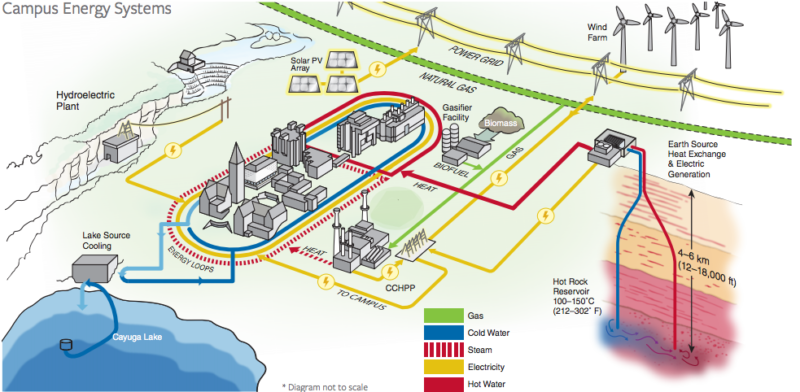Geothermal energy—energy drawn from the internal heat of the Earth—has long been the purview of mountainous, volcano- and earthquake-prone regions like the western United States or Iceland. The US’ eastern states, on the other hand, have been generally disregarded as geologically unfit for geothermal projects because the rock beneath them rarely has the natural fractures or water sources necessary to easily build a geothermal system. But that’s not stopping Cornell University—based in upstate New York—from thinking it can warm its Ithaca campus in winter by tapping into heat from “basement rock,” two to four miles underground.
Cornell announced a new project, called “Earth Source Heat,” this month. The university will research and potentially execute a system that will involve drilling deep into the rock near the campus, circulating fluid to capture the naturally-occurring underground heat, and using that fluid to directly heat the campus (rather than change the heat into electricity, as many geothermal plants do).
